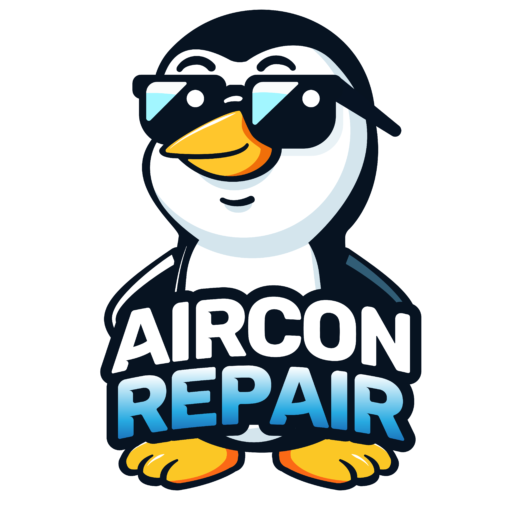When it comes to maintaining a comfortable indoor environment, your air conditioner (or aircon) plays a crucial role. However, like any mechanical system, it’s bound to experience wear and tear over time. If you’re facing issues with your unit, the big question arises: Should you opt for aircon repair or go for a full replacement? In this comprehensive guide, we’ll help you weigh the factors and make an informed decision to keep your home cool and your budget intact.
When to Consider Aircon Repair
Repairing your aircon can be a practical and cost-effective solution in many cases. Here are the key scenarios where repair is the better choice:
1. Age of Your Aircon
- Less Than 10 Years Old: If your aircon is under a decade old, repair is often the best option. Most modern air conditioning systems are designed to last 15-20 years with proper maintenance. Addressing minor issues early can help you extend its lifespan.
2. Minor Repairs
- Inexpensive Fixes: Problems like clogged filters, a refrigerant top-up, or a malfunctioning thermostat are typically low-cost and can restore your aircon’s performance.
- Quick Solutions: Minor repairs can often be completed quickly, minimizing downtime and inconvenience.
3. Repair Costs Are Affordable
- Less Than 50% of Replacement Costs: If the cost to repair your aircon is less than half the price of a new unit, repairing is a logical choice. This is particularly true for newer units.
4. Energy Efficiency is Intact
- Stable Energy Bills: If your energy bills remain consistent and haven’t spiked unexpectedly, your aircon is likely still operating efficiently.
5. Effective Cooling Performance
- Consistent Cooling: If your aircon effectively cools your space without frequent breakdowns, repairing small issues can help maintain its efficiency and comfort.
When to Replace Your Aircon
While repairs can be cost-effective, there are situations where replacement is the smarter long-term investment. Consider replacing your aircon in these circumstances:
1. Age of Your Aircon
- Over 10-15 Years Old: Air conditioners over a decade old may lack the efficiency and reliability of newer models. If your unit is 15 years or older and requires major repairs, replacement is often the more economical option.
2. Frequent Breakdowns
- Recurring Issues: If you find yourself scheduling frequent aircon repair appointments, it’s a clear sign that your system is nearing the end of its lifespan.
3. High Repair Costs
- Exceeding 50% of Replacement Costs: When the cost of repairs approaches or exceeds half the price of a new unit, it’s generally more practical to invest in a replacement.
4. Rising Energy Bills
- Decreased Efficiency: An aging or failing aircon may require more energy to cool your space, leading to higher electricity bills. Upgrading to an energy-efficient model can significantly reduce these costs.
5. Inconsistent Cooling Performance
- Hot and Cold Spots: If your aircon struggles to maintain consistent temperatures or certain areas of your home remain uncomfortably warm, it may be time for an upgrade.
6. Use of R-22 Refrigerant
- Phased-Out Refrigerant: Older aircon units that rely on R-22 refrigerant (Freon) are increasingly expensive to maintain due to its environmental phase-out. Modern units use eco-friendly refrigerants that are more cost-effective and efficient.
The Importance of Regular Maintenance
Whether you decide on aircon repair or replacement, regular maintenance is the cornerstone of a well-functioning system. Scheduling periodic inspections and tune-ups can:
- Extend Lifespan: Routine care ensures your aircon lasts as long as possible.
- Prevent Major Issues: Addressing small problems early can save you from costly repairs or replacements.
- Enhance Energy Efficiency: A well-maintained aircon consumes less energy, reducing utility bills.
How to Make the Right Decision
Here are some steps to help you decide between repair and replacement:
1. Consult a Professional
- An HVAC technician can assess your aircon’s condition, identify underlying problems, and provide an accurate cost estimate for repairs or replacement.
2. Evaluate Your Budget
- Consider the immediate repair costs versus the long-term savings of investing in a new, energy-efficient unit.
3. Consider Your Comfort Needs
- If your current aircon isn’t meeting your cooling needs or struggles in extreme weather, upgrading to a modern system can improve comfort and reliability.
4. Check for Warranties
- If your aircon is still under warranty, repairs may be covered, making it a cost-effective choice.
Conclusion
Deciding whether to repair or replace your aircon ultimately depends on factors like its age, repair costs, energy efficiency, and performance. If your unit is under 10 years old and experiencing minor issues, a quick repair can restore comfort and save money. However, for older units or those with recurring problems, replacing with a newer, energy-efficient model can provide better cooling, lower energy bills, and peace of mind.
To ensure the best outcome, consult a trusted HVAC professional who can guide you based on your specific situation. Don’t let a malfunctioning aircon compromise your comfort—address the issue promptly and enjoy a cool, comfortable home all year round!
